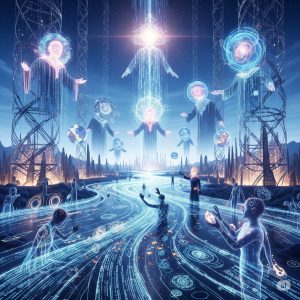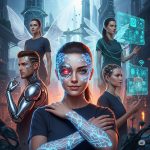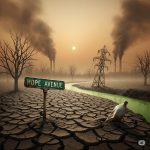
How did we arrive at this cultural moment?
According to the philosopher of information Luciano Floridi we are in the midst of a fourth scientific revolution, and it is this fourth scientific revolution that has brought on the infosphere.
- The first revolution, the Copernican revolution, removed human beings from the center of the cosmos. According to Nicolaus Copernicus (1473-1543), the Earth is not the center of the universe, rather it is the 3rd planet in our solar system, revolving around our Sun.
- The second scientific revolution was the Darwinian revolution. According to Charles Darwin (1809-1882), humans are not only not at the center of the cosmos, but we are also not at the center of life either.
- Finally, the Freudian revolution showed us that are minds are not stand-alone souls with which we have total transparent access, as Rene Descartes taught us.
- We now arrive at the fourth revolution, our current revolution, the information revolution. Today, for many, we are no longer viewed as “standalone entities” but “rather interconnected informational organisms or inforgs, sharing with biological agents and engineered artefacts a global environment ultimately made of information, the infosphere.”[1]
Now that we live in the “infosphere” what is life like for modern humans?
The first diminishing of the human experience within the infosphere is a loss of our individuality.
The second diminishing of the human experience results from the loss of any distinction between here and there.
Finally, the third diminishing of the human experience is from a loss of the distinction between online and off-line.
In sum, the infosphere is becoming “increasingly synchronized (time), delocalized (space), and correlated(interactions).”[2]
What new movements, new religions, are we finding in the infosphere, given the information revolution?
Three ways that the infosphere is shaping the future of humanity.
First, we are witnessing the erosion of the human experience of the world.
Second, we are witnesses the erosion of human dignity.[3]
Finally, in a world governed by technology in the ever-more connected infosphere, some, i.e., those captured by the techno-utopian vision of the world, argue that we’ve entered a new religious era, the “data religion” era.[4]
[1] Luciano Floridi, Information: A Very Short Introduction (Oxford: Oxford University Press, 2010), 9.
[2] Ibid., 17.
[3] Norman Wirzba, This Sacred Life (Cambridge: Cambridge University Press, 2021), 55.
[4] Ibid., 57.





